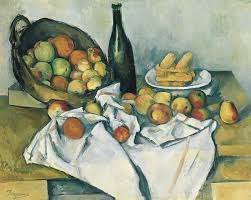by Dwight Furrow
 A life in which the pleasures of food and drink are not important is missing a crucial dimension of a good life. Food and drink are a constant presence in our lives. They can be a constant source of pleasure if we nurture our connection to them and don’t take them for granted.
A life in which the pleasures of food and drink are not important is missing a crucial dimension of a good life. Food and drink are a constant presence in our lives. They can be a constant source of pleasure if we nurture our connection to them and don’t take them for granted.
Because food and drink are an easily accessible source of pleasure, barring poverty or disease, to care little for them is a moral failure with consequences not only for the self but for others around us. However, to nurture that connection to everyday pleasure requires thought and restraint. Pleasure can be dangerous when pursued without reason and self-control. Addictive pleasures damage us and everyone around us. Addicts, in fact, cannot feel pleasure as readily as the non-addicted and require increasing levels of stimulation to find satisfaction. Addictions and compulsions are pathological and are no model for the genuine pursuit of pleasure. Thus, we need to make a distinction between pleasure that we get from thoughtless, compulsive consumption, and pleasure that is freely chosen. Pleasure freely chosen is actually a good guide to what is good for us and what should matter to us.
This emphasis on freely chosen pleasure is important not only for keeping us healthy but because certain kinds of pleasures are deeply connected to our sense of control and independence. Some of the pleasures in life come from the satisfaction of needs. When we are cold, warm air feels good. When we are hungry even very ordinary food will taste good. But such enjoyment tends to be unfocused and passive. We don’t have to bring our attention or knowledge to the table to enjoy experiences that satisfy basic needs. We are hard-wired to care about them and our response is compelled.
However, many pleasures are not a response to need or deprivation. We have to eat several times a day, but we don’t have to eat well several times a day. Pleasure freely chosen is essential to a good life because it expresses our independence from need. Read more »
